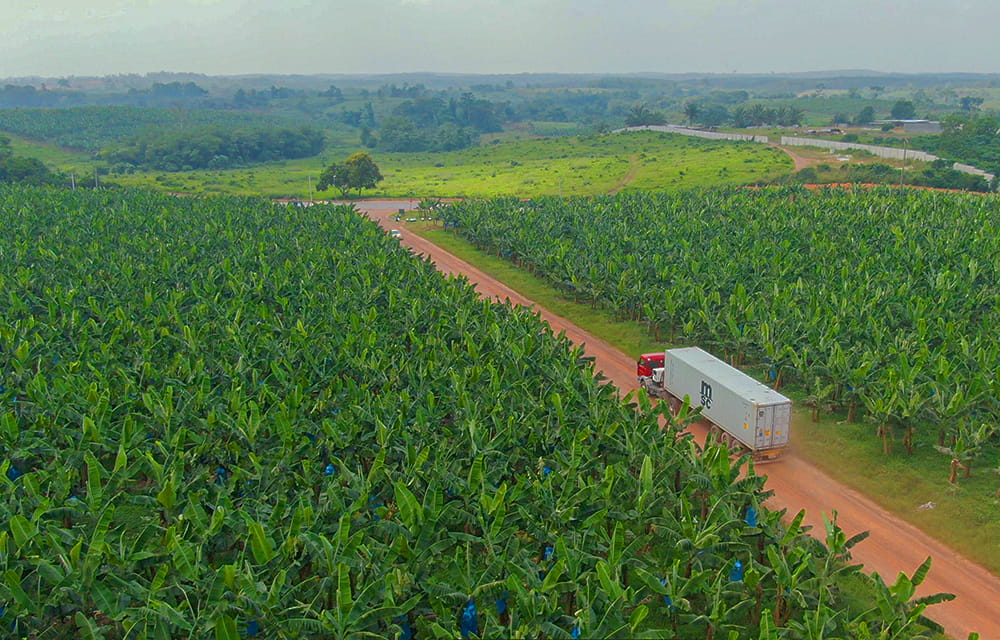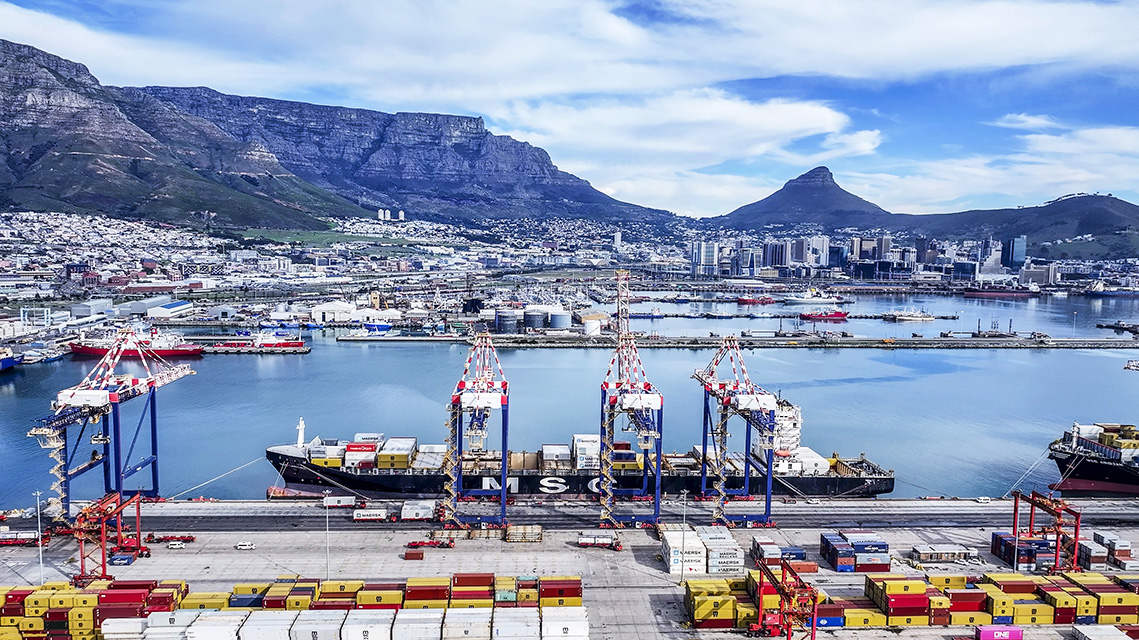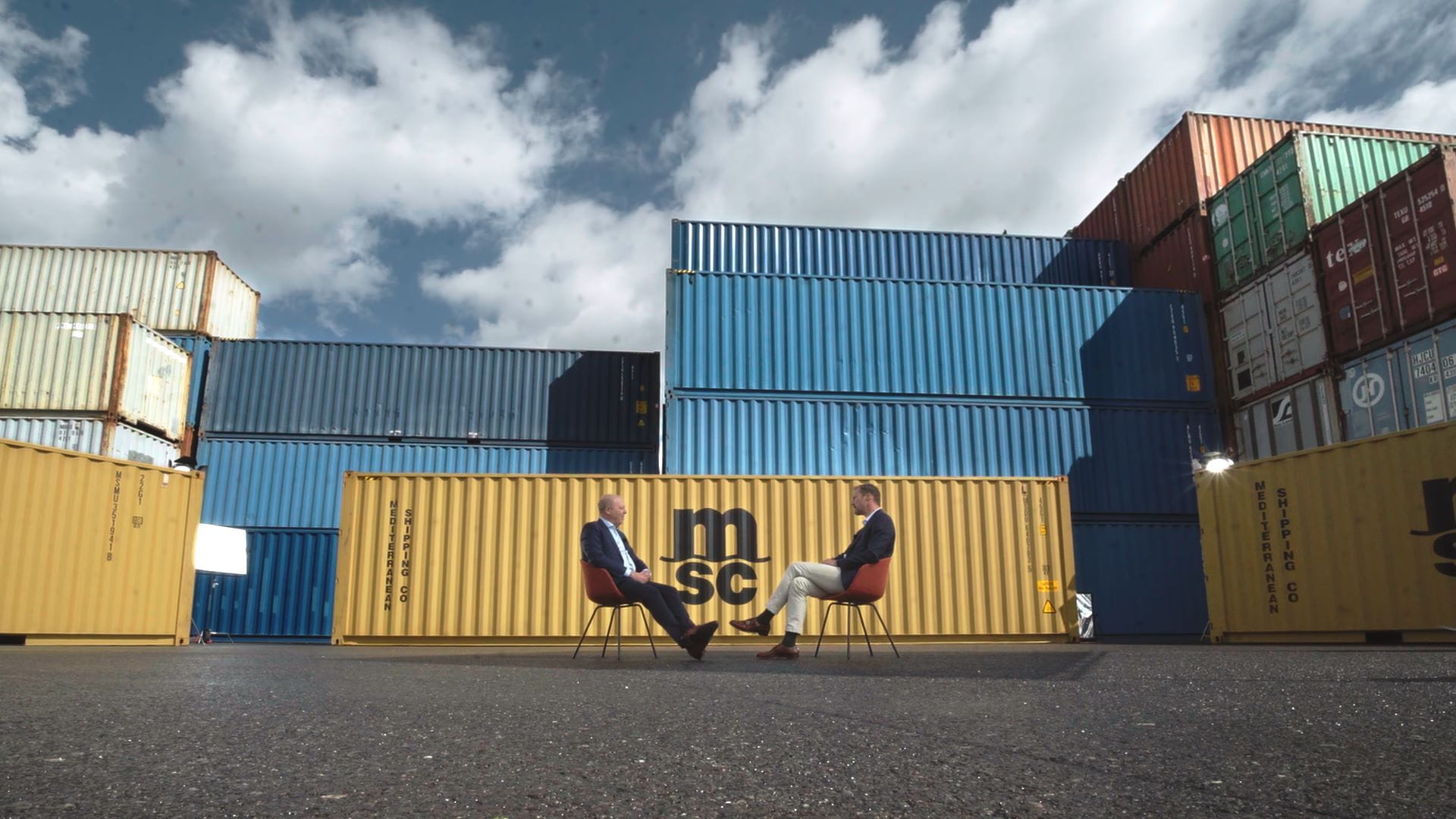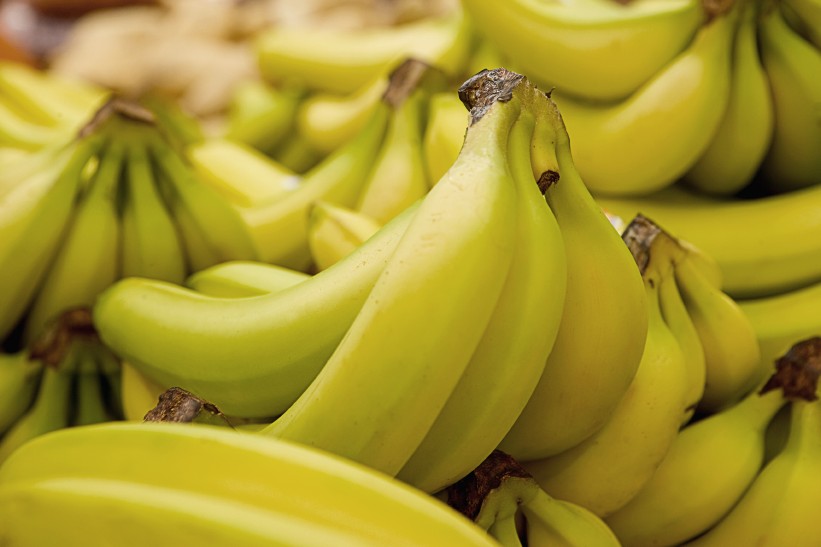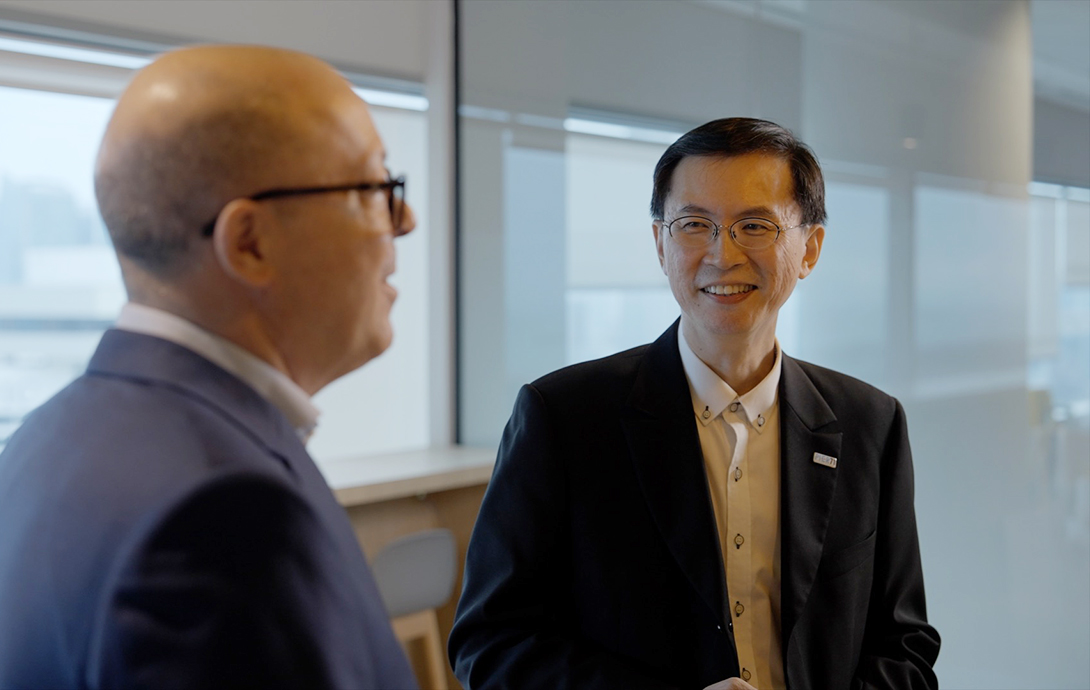
/de/newsroom/stories/msc-digital-talks-episode-5-unpacking-the-benefits-of-smart-containers
MSC’s CDIO Andre Simha met with Raphaelle Hemmerlin, Sucafina’s Head of Logistics & Operational Efficiency, at a café in Geneva, to talk about ‘smart containers’: standard containers equipped with an internet-connect device to allow real-time tracking and monitoring.
As part of our #MSCDigitalTalks series, they discuss the many benefits of smart containers, which go far beyond the real-time tracking. The IoT technology also helps to keep an eye on Sucafina’s coffee conditions, providing lots of useful data about the journey. Raphaelle shares some fascinating insights and learnings, as well as useful advice for customers and partners to try smart containers.
“ Every cargo trip has a story to tell. There are insights and data we want to leverage “
About Sucafina
Sucafina is a leading sustainable Farm to Roaster coffee company with a family tradition in commodities dating back to 1905. Today, with more than 1,200 employees in 32 countries, the Group is one of the leading coffee trading houses in the world, and one of the few focused entirely on coffee. Sucafina’s extensive supply chains span from producer-facing export operations to destination sales offices worldwide. To learn more about Sucafina, visit their website.
About MSC's smart containers
Interested in learning more about our smart containers? Visit this dedicated page
Read Episode 5 Transcript
INTRODUCTION
Andre Simha: Raphaelle, wonderful to meet you today in our Digital Talks to talk about Smart Containers. And where better to talk with you than this beautiful cafe. Sucafina is one of the leading coffee traders. Can you tell us a bit more about what you do?
Raphaelle Hemmerlin: Sure! Sucafina is a coffee merchant, and we are a family company like MSC. I'm leading logistics and operational efficiency. Our role is to bring coffee from producing countries up to the customer. We need to have coffee delivered at the right time, at the right place and with the quality preserved.
Andre Simha: I believe in 2019, Raphaelle, you started to pilot smart containers, actually one of the early adopters, particularly in the coffee trading business. So, what were the benefits that you were expecting to get out of those pilots?
Raphaelle Hemmerlin: Sucafina has innovation in its DNA. We are entrepreneurs. So, I would say, first of all, we wanted to try. Second, there is really a bigger vision. We aim to look at traceability into the entire coffee supply chain and benefits for the stakeholders. We believe that the data and insights that are valued to be integrated with platforms like Farmer Connect or Cargoo or others.
Andre Simha: So, just to explain, these collaborative data ecosystems for better traceability of commodities.
Raphaelle Hemmerlin: You see we have more than just a container to deliver. Every cargo trip has a story to tell. They are insights and data we want to leverage.
Andre Simha: And that's where smart containers come into play.
Raphaelle Hemmerlin: Exactly. And, you know, coffee is almost exclusively moved by containers. So, trying to understand how *IoT will make the containers bring more value for coffee supply chain was very important to us.
Andre Simha: And how is it going so far?
Raphaelle Hemmerlin: Pretty well. We have shipped thousands of smart containers since we started, especially from Brazil to US or East Africa to Europe. In the context of the current global congestion, having to know where my containers at any time are, that was quite priceless.
BEYOND GEO-TRACKING: HOW SMART CONTAINERS PROTECT CARGO (02:46)
Andre Simha: And Raphaelle o top of the real time geo-tracking of the containers, what else? What are the other benefits that you saw?
Raphaelle Hemmerlin: The first really was gaining visibility and autonomous and trustful visibility at any time. Getting to know if my doors were open; Were they closed? Has the shipment gone pretty well? Were there shocks? These are data that we can call. We don't need them all the time, but when we need them, they need to be correct.
Andre Simha: And so, getting notifications when something goes wrong allows you to manage those exceptions for your customers.
Raphaelle Hemmerlin: You nailed it, Andre. Coffee is a sensitive commodity, so we really want to keep a close eye through the entire journey, so that you and I can enjoy a nice coffee right now.
UNPACKING THE SMART CONTAINER EXPERIENCE (03:41)
Andre Simha: So Raphaelle, back to the beginning, when you started to look at smart containers, did you actually define smart goals for those smart containers?
Raphaelle Hemmerlin: It became very apparent since the very beginning that what we can learn is around the risk management of our goods. And the second thing was really around the cargo visibility and cargo integrity. These are the two important things we've learned. I believe in the future we will probably be able to learn more about cargo emission.
Andre Simha: That's very interesting. Now tell me, what has been your experience in terms of collaboration and innovation?
Raphaelle Hemmerlin: Working with MSC is extremely easy. We make yearly plans for where we wish to have smart containers explored and the team is extremely easy and helpful and reactive. Also, in terms of debriefing, how the IOT devices can support us better or how the data system can work better. We feel heard and supported.
Andre Simha: Yes, that's MSC's personal touch. And I think smart containers can provide so much information and it's not "one size fits all". So, we try to tailor-make the solutions for our customers.
Raphaelle Hemmerlin: And I would like to add that we are very grateful. Meaning in the sense that as a customer, it's not a big investment for us to use smart containers. It's really the shipping line who's making the equipment for the fleet with IoT devices.
TOP TIPS ON GOING SMART (05:12)
Andre Simha: Was it difficult to convince your customers and partners? And the reason I ask is because in recent conversation with the CEO of Portbase in Rotterdam, we talked a lot about how you needed to take the time for innovation and that in the day-to-day operations, it was often difficult to find that time.
Raphaelle Hemmerlin: Let me share what I think is key for the buy-in. One speak with the right people who will actually benefit the most from gaining this live visibility in their supply chain. Make it easy. For us it was really easy to make the switch to smart containers for both our receivers and suppliers, because they didn't have to change their flow or their process. And third, think about: what if you don't do it? There's a lot of data that are going through our ecosystems right now, and it's a wasted opportunity not to connect them together. I think we need to think smarter about smart data. And there is a lot of opportunity for our industry going forward around this.
Andre Simha: Yes, absolutely. That's very insightful, Raphaelle, and I really want to thank you so much for taking the time to participate in this Digital Talks. Thank you again.
Raphaelle Hemmerlin: Thank you.
